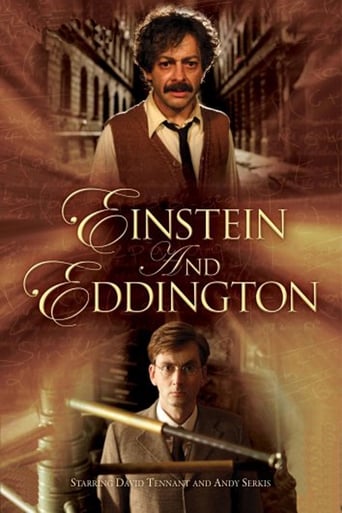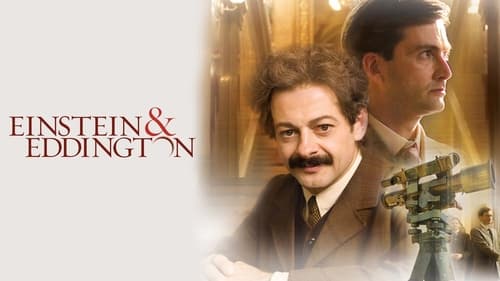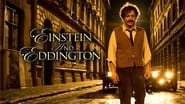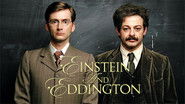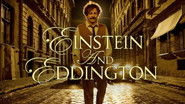regdennick
Although this is superficially an interesting, entertaining and well produced film with some good acting the writer, director and producer have unfortunately put drama before historical and scientific accuracy. The errors in this film are significant from both a historical and scientific perspective and it is a pity that the story of one of the greatest discoveries in scientific history, the results of which still reverberate around the world today, has been distorted and fabricated to make a drama. One wonders if the script was ever looked at by a professional scientific historian who actually knew what had happened or if the producers and director just accepted it as written. According to the credits Walter Isaacson, who wrote a biography of Einstein, is stated as a consultant. His 2007 biography of Einstein does not support the narrative structure of the film (made in 2008) and in particular does not describe the exchange of letters between Eddington and Einstein nor does it refer at all to the involvement of Sir Oliver Lodge. The key moments in the story and the various conflicts exposed could all have been based on actual events with the real people involved without compromising the drama. Unfortunately the writer invented situations that never happened, transposed individuals into roles they never had and simplified the announcement of the final discovery to the point of absurdity. Given the importance of this famous discovery to science and to the centenary of the event in 2019 one hopes the BBC do not resurrect it at that time as it is a complete travesty. I will list the errors below in the order in which they appear in the film. Some errors may be perceived as trivial and legitimate simplifications for dramatic purposes but other errors are much worse and significantly alter how this great discovery was made and how it was communicated. 1. The opening scene depicts the hauling of astronomical equipment up over rocks on Principe. This did not happen. The eclipse was photographed from the Rosa Sundy plantation which had road access from the port of Santo Antonio. 2. Eddington asks for papers by Einstein in the library and is handed one paper with the comment 'it's all there is'. The paper in question was published in Annalen der Physik in 1905 along with four other ground breaking papers by Einstein. The library would have had this very important journal plus many other papers by Einstein published in the decade up to 1915. 3. Possibly one of the most egregious inventions in the film is that Sir Oliver Lodge is given the leading role of criticising Einstein, supporting Newton and of apparently being the President of the Royal Astronomical Society. There is absolutely no evidence that Lodge was an astronomer or was involved with gravitation, Einstein or Eddington. He most certainly was not president of the Royal Astronomical Society and he did not appoint Eddington to run the Cambridge Observatory. His role in the film is entirely spurious and is presumably there because his son was famously killed at the first battle of Ypres allowing him to represent the antagonism against German science and the use of poison gas warfare by German scientists. To use an existing historical character like this who famously went on to become a spiritualist and President of the Society for Psychical Research is bizarre. 4. Eddington did not write to Einstein asking him to solve the problem of the anomalous orbit of Mercury. Einstein was already well aware of this problem and in fact solved it entirely on his own shortly before publishing his final theory in 1916. 5. In relation to point 4 Einstein did not collaborate with Planck on solving the Mercury problem. In fact Planck worked in an entirely different field from Einstein and had no involvement with his General Theory. Einstein was helped in the final formulation of his General Theory by David Hilbert. 6. Einstein did not write to Eddington with the solution to the Mercury problem. 7. Sir Oliver Lodge did not approve the granting of the money for the Principe expedition. 8. Eddington did not devise the eclipse experiment to test the bending of starlight. This had been suggested by Einstein years earlier and there had even been unsuccessful expeditions to test the prediction. 9. Dyson did not go to Principe with Eddington, it was Cottingham. 10. At Principe there were not six bad plates and two good ones. There were 16 plates taken during the eclipse; 9 showed nothing due to cloud and 7 plates showed up to 20 stars on which measurements could be made. 2 plates in particular provided very good images. 11. The plates were not first examined in public as depicted in the film. They had been meticulously measured for months previously along with other plates from Sobral in Brazil. The idea that Eddington looks at the plates for the first time in front of a large audience and declares a 'gap', thus vindicating Einstein, is absurd. Not only that there were two deflections up for consideration: a Newtonian one and an Einstein one twice as big. More could have been made of this in terms of the conflict between supporters of Newton and Einstein.
Kong Ho Meng
Its a long time since A Beautiful Mind that another biographic movie of scientist is made. And this movie, in fact is about 2 scientists, is a great work! The inclusion of Eddington is a good choice by the director. He could have made just a movie about Einstein, but the role of Eddington help to add different point of view but also show how, in real life, scientists collaborate to achieve a common goal. He has made this movie a true account for scientists in general . It is a well-made period movie. The emotional and social impacts ( of the war and the transitions of the era) upon the characters are expressed accordingly. Hence, this movie manages to balance the science side and the human side of the lives of both einstein and eddington. In fact it is probably the first movie about scientists that makes the subject look pretty human, and a character than the audience could actually relate to
Susan
Andy Serkis was the biggest problem for me in this film. Because he spoke nothing like Einstein (whom I've often heard in clips)--and projected nothing of the personality I've read about--that portion of the film really threw me off. Other actors have decided to neither take coaching to speak like or change themselves to look like the famous characters they portrayed; but Serkis took that one step further by changing his character's basic personality too--and often portrayed Einstein as a canny clownish elf! I felt the casting was a mistake, and the acting was a throw-away. What a shame.David Tennant was fine, though. And discovering the laws of physics and development of what went on in the early years of the last century was thrilling--if over-dramatic in some places.
IMDbeans
Although this was easy and enjoyable to watch, the characters all lacked depth and the script in general was rather superficial, simplistic and ultimately unsatisfying. It could have been so much more, given the fascinating setting and the magnitude of the underlying facts. The science itself was almost completely omitted or dumbed down. It was disappointing that there was a rather cheap and unconvincing attempt at a religious 'miracle' as well as some one-dimensional and unnecessary politics. On the positive side, Cambidge university in the WWI era made for a pleasing backdrop and the actors' performances were decent on the whole.
